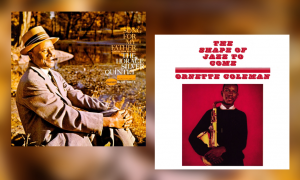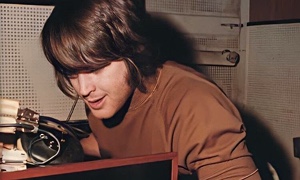Home » Jazz Articles » Building a Jazz Library » Jazz on Soul, Pop, Rock, Folk, And Other Intangible Terr...
Jazz on Soul, Pop, Rock, Folk, And Other Intangible Territories - Part 1
Jazz is synonymous with improvisation, but in many cases, it's also about adaptation. This means not just adjusting to new times and social changes, but also frequently reinterpreting songs from its own history and others beyond its vague borders. Here, we present ten highly disparate compositions from different genres, showcasing how they can be transformed in unexpected ways. Artists like Stevie Wonder, ABBA, Rufus Wainwright, and Radiohead will have their works reimagined, sometimes fitting into a specific jazz style, and others presented with a fresh, unique personal touch.
This selection is complemented by a Spotify playlist, which also contains the original version of each song discussed here. Sometimes, instead of the first recording, the best-known version is included, or another very representative reading of the song.
Wonder's World
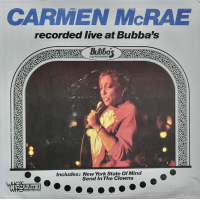 Carmen McRae
Carmen McRae Recorded Live At Bubba's
"Superwoman"
Who's Who In Jazz
1981
Carmen McRae lands among us, the still mortals, to dazzle with her exquisite elocution, that clairvoyant phrasing and, ultimately, one more of those many interpretations of her full of powerful, subtle jazz truth. We are facing a vocalist who deeply masters the manipulation of musical raw material, both at the melodic level and in the interpretation of the text, and who, like all the great ones, demands to be heard syllable by syllable and melisma by melisma. Despite presenting the song as "Superwoman," McRae concentrates on the second half of it, the delicious "(Where Were You When I Needed You)," a kind of contrafact of the first part, in which Wonder's composition lowers the harmonic key and the initial tempo, establishing an irresistible atmosphere where the restrained amorous reproach struggles with an inevitable emotional surrender. The Harlemite navigates such a spectrum of feelings with ease, immersing us, as expected, in her marvelous art. And as she states in the intro, "and we drink to that!"
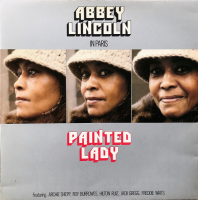 Abbey Lincoln
Abbey Lincoln Painted Lady (Abbey Lincoln In Paris)
"Golden Lady"
Blue Marge
1980
At her side, the resounding presence of Abbey Lincoln tackles another song from Wonder's extensive repertoire, included by him in his 1973 album Innervisions. Her interpretation comes from a 1980 record initially published as Painted Lady (Abbey Lincoln In Paris), but also sometimes released as Golden Lady. Maybe influenced by the Parisian winter, where it was recorded, the vehement vocalist and civil rights activist removes the sunny, enthusiastic optimism of the original song and delivers a version soaked in the humid, depressed spirit of a rainy afternoon, as if through watery glass we were contemplating the action of inclement weather, with the sun's rays only appearing when the already useless last moments of the day arrive. The recording is also somewhat tarnished in its quality, especially on Archie Shepp's lucid, piercing saxophone, which converses loquaciously with a leader who has matured her energetic ways: not in vain, twenty years have passed since her angry intervention in We Insist! Max Roach's Freedom Now Suite. Lincoln recites with almost resigned calm his very personal speech, with those long, convinced notes thrown like musical spears that end up subtlety sliding along the harmonic floor, meanwhile perhaps improvising the length of the take—those false endings—under the complicities and dynamics perceived in the studio. It's not a round cut, although a suggestive snapshot, blurry but intermittently captivating.
Two Folk Songs
 Charlie Haden & Carla Bley
Charlie Haden & Carla Bley The Ballad Of The Fallen
"Introduction to People / The People United Will Never Be Defeated"
ECM Records
1983
Jazz as a musical instrument of rebellion: this was the personal vision of the ever-committed Charlie Haden. From his first record as a leader, with his explicitly named Liberation Music Orchestra, the Shenandoah one cultivated an exploratory (Paul Bley, Ornette Coleman) but deeply politicized style, rooted in popular and protest songs, with special thematic attention to the Spanish Civil War, Latin American and African movements of resistance to colonialism (in all its more or less concealed forms), and the Vietnam conflict. Haden returned to the theme of the Spanish fratricidal confrontation in his iconic The Ballad of the Fallen from which we extract this personal vision of the universal Chilean resistance anthem written by Sergio Ortega and Quilapayún. Structured in two linked cuts, the track is preluded by a magnificent introduction where Haden's double bass and Carla Bley's piano weave in perfect communion a descending, abysmal harmonic tapestry, with Michael Mantler's almost ceremonial trumpet chanting with a restrained, essential oratory. The theme is clearly and briefly presented by Jack Jeffers' tuba in the following cut, ending with sardana-like airs and closing with the final bars of "Els Segadors" (The Reapers), the Catalan national anthem, and the song which, in turn, opens this peculiar, highly esteemed—especially in some geographical areas—vinyl.
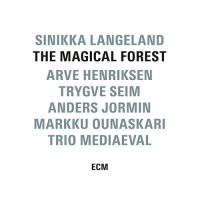 Sinikka Langeland
Sinikka Langeland The Magical Forest
"Jacob's Dream"
ECM Records
2016
More than thirty years have separated these two productions from the ECM label. Still, they are united by a strong aesthetic and sound design concept, as well as an invariable appetite for risk towards an alternative to the main currents, a fully consolidated option that, despite its laterality, retains a "saleability" factor—beyond the purely commercial—without which its long adventure would not be possible. In this second selection, the vocalist, composer, musicologist and kantelist Sinikka Langeland, a researcher of Norwegian folklore origins, surrounds herself with the best of contemporary Nordic Jazz and the sublime Trio Mediaeval to give birth to this supernatural The Magical Forest. Even though it is an original by Langeland, her "Jacob's Dream" seems to be inspired, especially in its first part, by the homonymous "Jakobi Unenägu," a runic song from the—relatively—close, culturally and geographically, Estonian folklore. The initial focus is on Sinikka's voice, her bewitching kantele, and the fascinating, siren-like voices of the Norwegians, but after four minutes the piece enters the shadowy atmosphere of the boreal taiga: there, Arve Henriksen's trumpet and Trygve Seim's saxophone exchange moist, coniferous reflections on the mossy blanket that Anders Jormin's double bass and Langeland's kantele offer them, Markku Ounaskari's drums levitating around. In this case, and from a jazzy point of view, we are dealing more with jazz musicians who make incursions as outstanding accompanists for folk and early music stars, than with maybe unreasonable adaptations to jazz of runic, mystical tunes.
A Certain Cabaret Scent
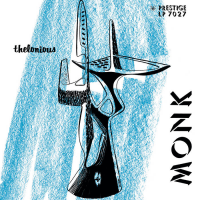 Thelonious Monk
Thelonious Monk Thelonious Monk
"Just a Gigolo"
Prestige Records
1956
Perhaps the first great avant-garde jazz pianist, Thelonious Monk adapts under his idiosyncratic syntax the popular song, a tango with Austrian airs signed by the Italian composer Leonello Casucci in Vienna, at the end of the Roaring Twenties. Despite being recorded in 1928 and the early '30s by stars of the moment such as Damia or Louis Armstrong, its—commercially—definitive version would not arrive until April 1956, via another Louis (Prima), also a singer, bandleader, and trumpeter, and also a native of New Orleans, although of Italian origins. Monk plays successfully with accents, silences, rhythmic displacements, and his usual—apparently—stiff or failed melodic lines, ending up creating a version full of melancholy and longing, especially in his final comments.
 Joachim Kuhn
Joachim Kuhn Famous Melodies
"Lili Marleen"
Label Bleu
1993
Leipzig pianist Joachim Kuhn's reading of the immortal German love song popularized during WWII is no less overwhelming and disarming, from the very moment of its first listening and, most likely, hundreds of times after that. This is certainly helped by the wonderful recording, where we feel reduced and transported inside the very sound box of the piano, between some strings that seem to become a smooth surface along which we joyfully rush, guided by the prodigious talent of the now resident in Ibiza. Kühn unfolds an extraordinary transformation of the chorus through skillful harmonic and rhythmic manipulations, giving it a penetrating aroma of time already vanished, and leaves us with that ineffable sensation that can only be controlled by pressing the "Play" key again, time after time until the self-inflicted sadness becomes unbearable.
Pop subtleties
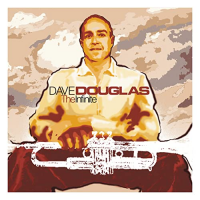
Dave Douglas
The Infinite
"Poses"
Bluebird
2002
A fundamental figure in the music forged during the end of the 20th century and the 21st first decades, Dave Douglas' aware trumpet seduces us irremediably, once again, since his estimable 2002 album The Infinite, where he transports several of his themes to familiar electro-Milesian territory (late '60s), along with others songs from R&B and electronica origins. Douglas' sometimes velvety, sometimes brittle sound caresses with extreme caution the intrinsically beautiful song by Rufus Wainwright, scrupulously respecting its architecture, melody and harmony, while supported by the softness of the Fender Rhodes of a prudent Uri Caine and by the springy bass clarinet of Chris Potter.
 Chris Potter
Chris Potter Underground
"Yesterday"
Universal
2006
And it is precisely the Chicago saxophonist who stars in the following selection, one of the countless Beatles covers made from jazz perspectives. Like Douglas (and in parallel to him), Chris Potter has become over the last few decades a prominent figure of contemporary jazz and one of its top-notch tenor men. Accompanied by the guitars of Wayne Krantz and Adam Rogers, Potter avoids melodic obviousness and imbues the song with an interesting Tristanian frost, crystallized under the shelter of a cool air that seems to perfectly adapt to the original idea of the boys from Liverpool.
The Iconoclastic Regard
 Brad Mehldau
Brad Mehldau Day Is Done
"Knives Out"
Nonesuch
2005
Brad Mehldau was one of the earliest jazz figures—if not the very first—to re-read Radiohead, back in 1998 with "Exit Music (for a Film)" within his The Art of the Trio -Volume Three (still with Jorge Rossy on drums), at a time when incorporating rock songs into the jazz repertoire still was an occasional practice. His look at some of the Abingdonians' compositions did not stop there: "Paranoid Android" in Largo and this hypnotic "Knives Out" act as witnesses, and we do not know if thanks to his faithful insistence or the peculiar characteristics of the songs by Thom Yorke's band, the fact is that Radiohead's songbook is one of the most visited from diverse spheres, whether fully jazz-oriented or adjacent to this genre. The theme (a common one in his live performances) is established with deceptive timidity via Larry Grenadier's double bass, but quickly transforms on a very compact melodic and rhythmic framework, with the nervous drums of Jeff Ballard spurring the leader's inexhaustible ideas, all inside a frenetic but firmly controlled atmosphere riddled with surgical runs and millimetric rhythmic chords from the Jacksonville pianist, who wisely keeps the composition within his particular harmonic universe, from start to finish.
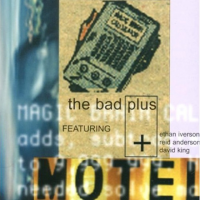 The Bad Plus
The Bad Plus The Bad Plus
"Knowing Me, Knowing You"
Fresh Sound New Talent
2001
Despite playing together since the late '80s, The Bad Plus' debut album did not come until 2001, with the self-titled disc recorded by the Catalan label Fresh Sound New Talent, under the direction of the indispensable producer Jordi Pujol. The mix of original songs with covers of materials that were a priori unexpected in these fields (Aphex Twin, Blondie and Black Sabbath), the fresh and unorthodox approach to their discourse and a carefully crafted aesthetic (the nerd, the alternative and the hard one) quickly propelled them to critical, commercial and musical success. Their evolution in recent years has been somewhat bumpy, with the departure of Ethan Iverson in 2017, followed by the one of his replacement, Orrin Evans, in 2021. Finally, Reid Anderson and Dave King decided to redesign the ensemble under new numerical and conceptual parameters, dispensing with the piano (a declaration of principles) and expanding the formation to a quartet, including Ben Monder and Chris Speed. In any case, and returning to its dazzling beginnings, the version of the ABBA song (an Anderson's confessed weakness) exudes adaptive intelligence, with Iverson taking the theme through classical twists and turns and leaving only the chorus, to which he adds an almost epic harmonic depth, as the only thing easily recognizable: in fact, a motif that as he makes clear in the liner notes, is practically the sole fragment that interests him from the original song by the lacquer-coated, visionary Swedes.
Tags
Building a Jazz Library
Artur Moral
Carmen McRae
Abbey Lincoln
The Bad Plus
brad mehldau
Dave Douglas
Charlie Haden
carla bley
Thelonious Monk
Chris Potter
Joachim Khn
Sinikka Langeland
Stevie Wonder
ABBA
Rufus Wainwright
Radiohead
PREVIOUS / NEXT
Brad Mehldau Concerts
Mar
5
Thu
Brad Mehldau with the HR Big Band @ hr-Sendesaal
Hr-sendesaal - Hessischer RundfunkFrankfurt am Main, Germany
Mar
14
Sat
Mar
15
Sun
Support All About Jazz
 All About Jazz has been a pillar of jazz since 1995, championing it as an art form and, more importantly, supporting the musicians who make it. Our enduring commitment has made "AAJ" one of the most culturally important websites of its kind, read by hundreds of thousands of fans, musicians and industry figures every month.
All About Jazz has been a pillar of jazz since 1995, championing it as an art form and, more importantly, supporting the musicians who make it. Our enduring commitment has made "AAJ" one of the most culturally important websites of its kind, read by hundreds of thousands of fans, musicians and industry figures every month.










